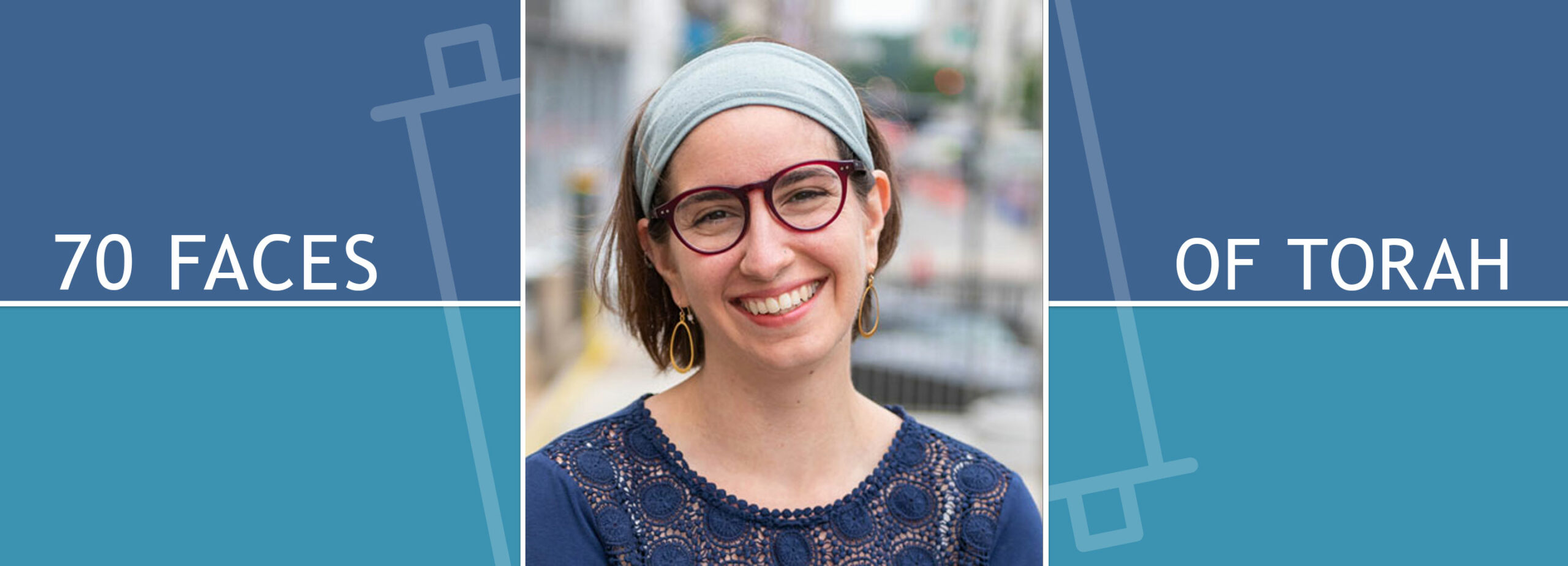Numbers A Web of Family and Friends

Parshat B’midbar, Numbers 1:1-4:20
For many years, I’ve felt like a person without a home. Since I left for college, my mom has moved many times. I have family in Arizona and Israel, New York and New Jersey and even New Zealand, but there’s no obvious single place to go when everyone else goes “home for the holidays”. It’s not just my family that’s far-flung; I’ve done my own share of moving over the last ten years, between Chicago, New Zealand, Connecticut, Michigan, New York, Israel, Boston, and Minnesota. So for me, the idea of living close to family, of having a home base to which one can always return, is a foreign and yet appealing concept.
As I encounter the parasha for this week, B’midbar, I am struck by the strong image of the Israelites traveling together, moving as one with their family units. The parasha tells us that “the Israelites shall camp each with his standard, under the banner of their ancestral house”—all the Judahites in one camp, the Reubenites in another camp, and so on. Lest you think each of these camps was a handful of people, we’re talking huge numbers of cousins and extended family members, with groups of tens of thousands of people traveling en masse in their family units.
There’s something powerful about imagining having all of your family, all of your cousins and first cousins and second cousins three times removed, all moving together in one encampment. If you need a babysitter, go next door. If you need to borrow flour, ask your brother. There’s no going home for the seder, because home travels with you, your family accompanying you on each stage of your journey.
To be fair, I imagine it isn’t as idyllic as all that. There’s also no privacy, with family members constantly interfering in each other’s lives and getting involved when perhaps one would prefer space. But as someone who can count their cousins on one hand, I’m drawn to the idea of a family that moves with you.
In all of my moving back and forth, I’ve learned two things about home and family in my own life. First, in the age of mobility and technology, a time when many grandparents meet their new grandchildren for the first time on Skype, we have to work hard to maintain real connections with our spread-out loved ones. The phone is not my best mode—and, yet, it is vitally important that I invest the time and energy to schedule weekly phone calls, as well as emails and texts, to keep myself tethered to family, even though—especially because—it requires effort and dedication. Second, we have to expand the definition of what family means.
Family is not just about the relatives to whom you’re connected through birth, adoption, or marriage and partnership. Family is the people who are there with you when you need them, the people that allow you to show up at their house unannounced on Shabbat, the people who you can call when you need a sympathetic ear.
There is no home that I go to for Thanksgiving. And, when Pesach comes round, I don’t have a family seder. But some of my most special holiday meals have come through the invitations of friends who have taken us on as family when we didn’t have somewhere else to go. The Israelites, as they marched through the desert—they had all their family with them. Today, many of us, have to work hard to maintain and strengthen relationships with the members of our families of origin, but we also have the opportunity to create wider families—of both relatives and friends—to be there right alongside us when we need them, and to be there for them, too.
As the Israelites’ numbers grew, they managed to stay close together, united under a cluster of common ancestral banners. I wish for all of us that even when we find ourselves separated from our loved ones, even if our family of origin is very small, even when we don’t have a particular place to call home, we will be blessed to feel tethered to a web of family and friends—what some people call “chosen family”—that sustains us as we move together through the wilderness.
Rabbi Avi Strausberg, Rab’15 is the Director of Congregational Learning at the Temple of Aaron in St. Paul, Minnesota and the creator of the Daf Yomi haiku blog inhaiku.wordpress.com.

